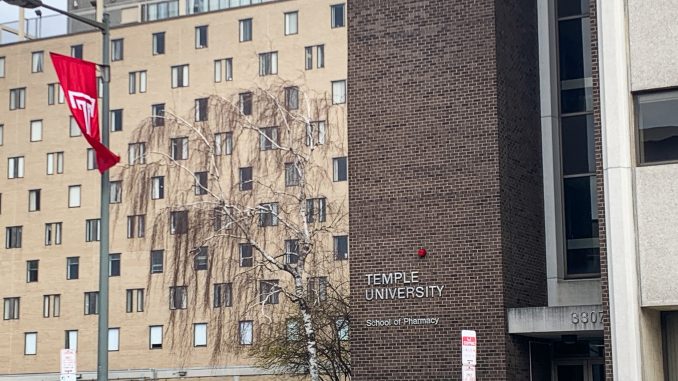
Before finally getting a kidney transplant in 2016, Halil Kasimoglu’s mom was on the waiting list for six years.
After watching this process, Kasimoglu, a third-year pharmacy student, decided to join Organ Donation Advocacy in 2018.
“There isn’t a lot of information about organ donation and how patients struggle to even get a glimpse of hope, to even get transplants,” said Kasimoglu, now the organization’s president. “What I can do for so little is just by even talking to people and giving them information makes me just proud of what I’m doing.”
ODA is a student organization at Temple University’s School of Pharmacy that raises awareness and debunks myths about organ donation. On Feb. 21, they won the American Society of Transplantation’s Organ Donation Challenge grant of $125.
The Organ Donation Challenge is a project where teams present a plan of how to use the grant money to increase awareness about organ donation.
The organization, with its 150 members, wants to host events like health screenings and fundraisers. ODA won the grant for the past three years, using the money to focus on the patients, preparing food for them at The Clyde F. Barker Penn Transplant House at the University of Pennsylvania, and organizing Game Night for the patients.
Last semester, ODA hosted a booth at Temple football games at Lincoln Financial Field to raise awareness for organ donation, and hopes to continue with similar activities, Kasimoglu said.
“We were able to go out to the communities and talk to not just the transplant patients and their family, and also involve like, the people who don’t have that connection to organ donation and give information about it,” he added.
While at the game, many people told Kasimoglu they believed doctors wouldn’t save their lives in an emergency situation if they were organ donors. He found these misconceptions hard to believe, but he recognized the need to debunk these myths, he said.
“By getting out to all of these people and talking to them with the right information, it just makes me happy that we’re destroying the stigma and misinformation about it,” Kasimoglu added.
In the United States, only 54 percent of eligible adults are registered organ donors. One organ donor can save up to eight lives, and in the U.S. every day 18 people die waiting for a transplant, according to Penn Medicine.
Pharmacists are integral in the transplant process, not only by counseling patients and screening for drug interactions but by answering questions regarding appropriate dosing, said Nicole Sifontis, a clinical professor of pharmacy and ODA’s advisor.
Students who go into the community and educate about organ donation can impact donor families and potential organ donors themselves, Sifontis said.
“Once you do that, you’re able to educate the public, and that that could really put us at a better place going forward in terms of how we can get to meet the supply for all these individuals who are awaiting life-saving organs and potential donors,” she added.
Every year, the organization hosts an Organ Donor Recipient Night where donors, recipients and Temple University Hospital staff discuss topics revolving around organ donation. This year, the club had planned the Gift of Life Donor Dash health walk in April to raise awareness.
In light of the COVID-19 outbreak, these activities are postponed until the fall.
“Our whole point is to raise awareness, which in turn, we hope that, you know, increases the number of organ donors in our community, and that will help more people get, you know, transplants,” said Shahreen Sharma, a second-year pharmacy student and the club’s treasurer.
While the organization is unable to host in-person events, they want to continue their goal by raising awareness on their Facebook page. They are hopeful that organ donation is a topic they need to continue working on, Sharma said.
“It gives us confidence in…all the plans that we had for raising awareness, like all the events that we had planned,” she added. “It gives us the motivation to actually, you know, although we can do them in the time that we wanted to, but it gives us confidence that these are strong events that we would love to do in the future.”



Be the first to comment